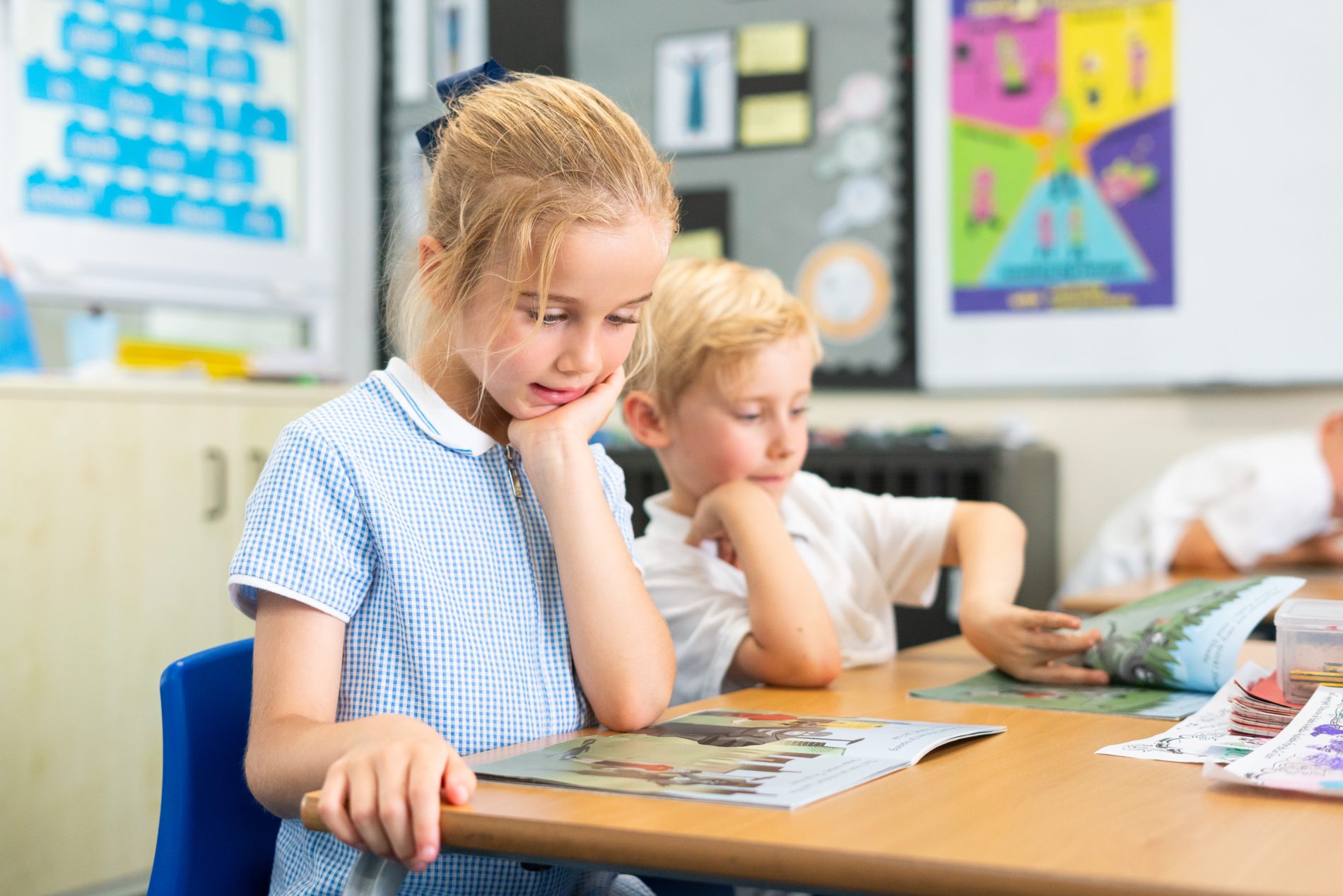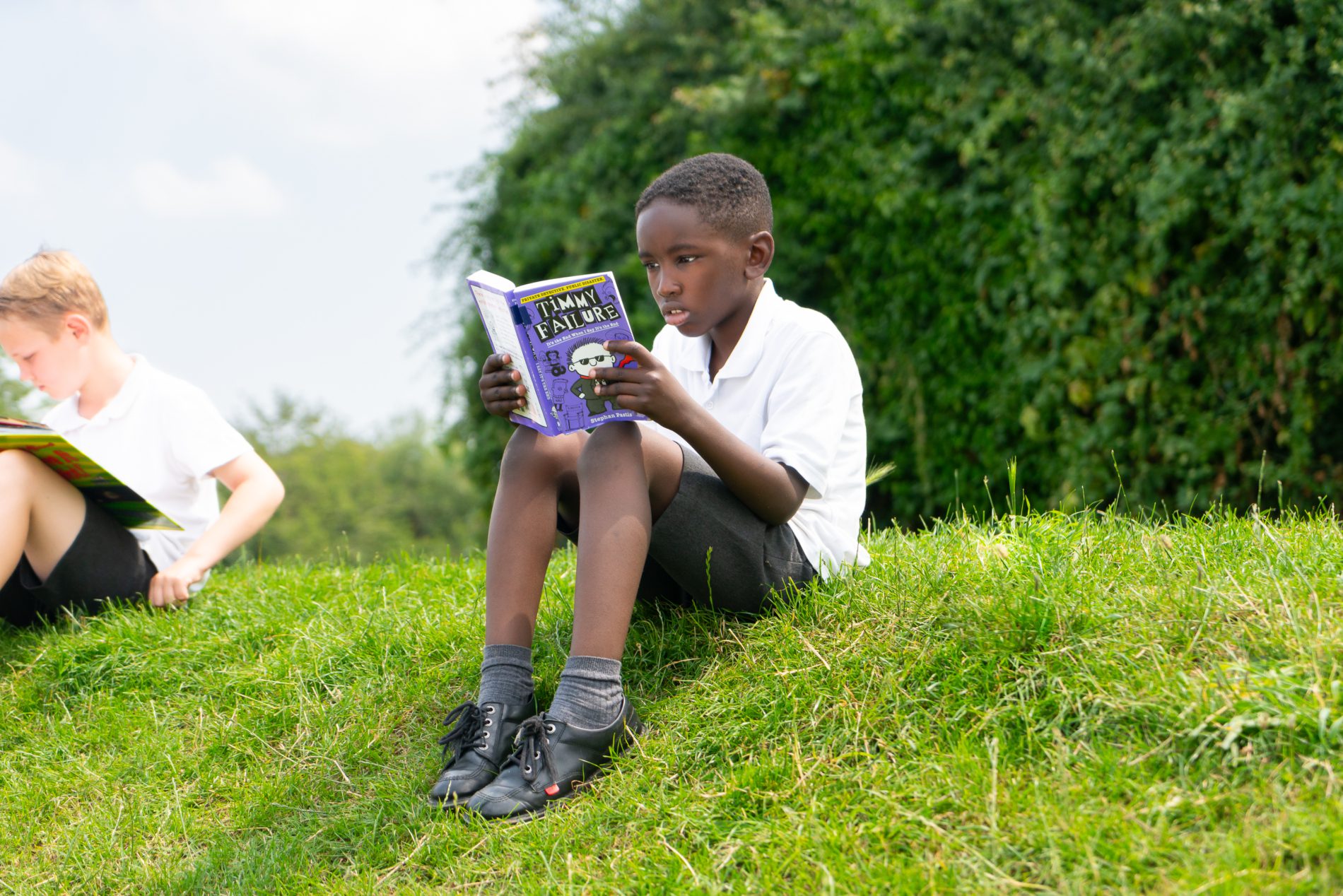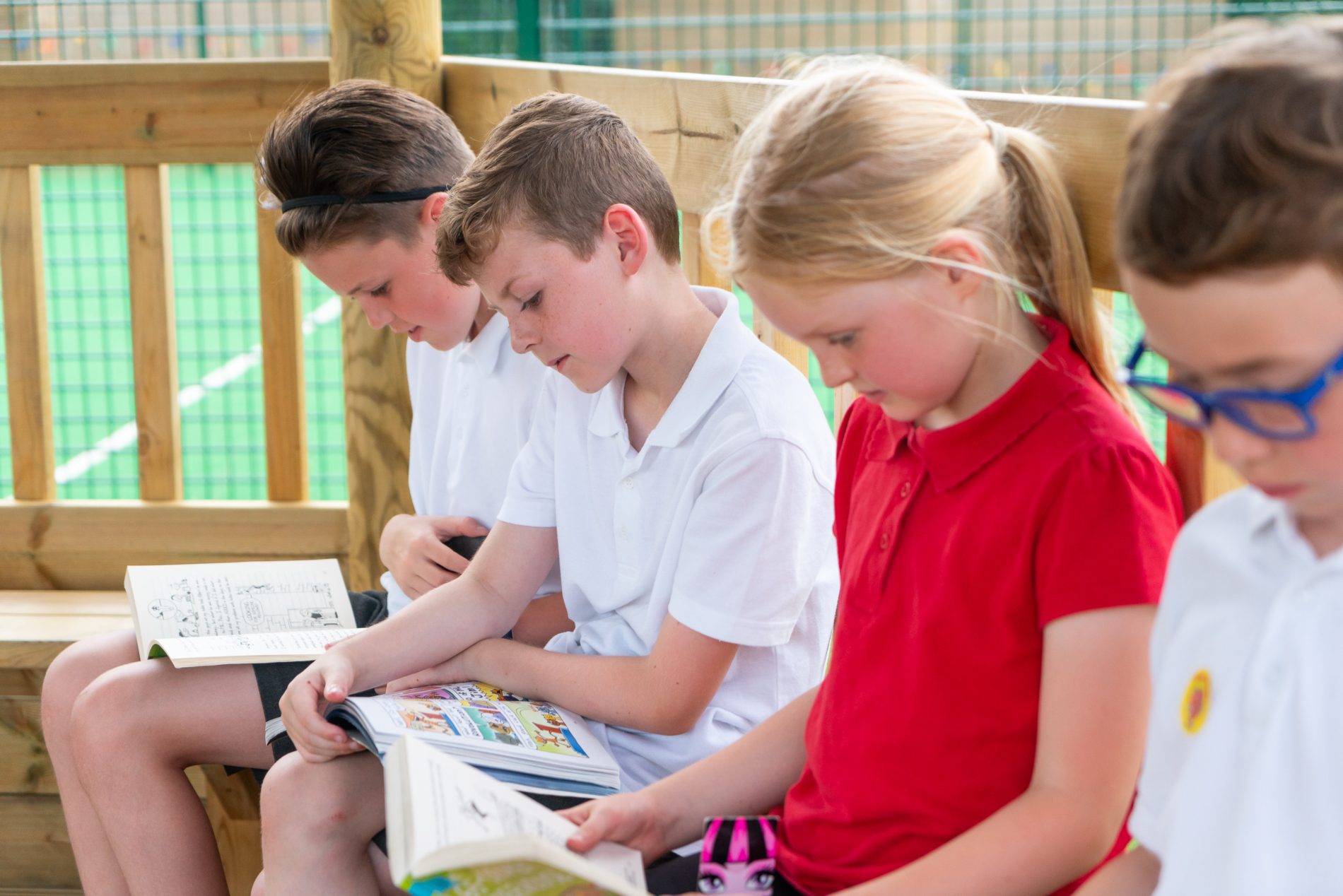English Reading Subject Leader: Miss L Greenbank
At Sutton-at-Hone Church of England Primary School, English reading is given top priority and is a key driver for our curriculum.
Intent
At Sutton-at-Hone School, we intend to create confident readers who develop stamina for reading.
We aim for all of our children to be independent readers, building on a range of skills to be able to read for a range of purposes and audiences. Children learn the full range of reading skills needed to be a proficient and fluent reader. They are exposed to a range of text types to develop an appreciation for the diversity of our world, building essential cultural capital to support future opportunities.


Implementation
We ensure children are immersed in a range of genres and have a clear understanding of purpose. Our children will have a secure understanding of the purpose of a text type, the intended impact of writing skills/tools and the ability to carefully select vocabulary with careful attention to the desired effect on the readers’ thoughts and feelings. All pupils develop the following reading skills throughout their school journey: Word Reading, Prosody, Retrieval, Inference, Vocabulary, Prediction, Summarising.
In EYFS and KS1, and also for pupils who need additional reading support in KS2, we use the Little Wandle Letters and Sounds Revised early reading scheme. As part of this scheme, pupils engage in small group reading sessions, including ‘keep-up’ sessions, which develop word reading, comprehension and prosody and increase reading fluency for children.
We use the Accelerated Reading (AR) scheme for years 1 – 6. This scheme enables pupils to enjoy reading books by popular authors at a level which is tailored to them and established using online reading diagnostic software called STAR Reading. Pupils read daily and when they have finished their books, they then take an online comprehension quiz, developing their retrieval and vocabulary skills whilst providing useful assessment information to support teachers and families.

Impact
Children become well-rounded and confident readers as a result of a progressive and structured approach to the teaching and learning of reading during their time at Sutton-at-Hone C of E Primary School. They are challenged and encouraged to take risks and view mistakes as part of the learning process. Children at Sutton-at-Hone value reading and it becomes a skill that enhances all aspects of their learning.
Reading at Home
Our expectation is that children read daily, for at least 20 minutes. Before children move onto Accelerated Reader, they are sent home with reading books matched to the sounds they are reading in class as well as a ‘real’ book for parents to read with them.
Accelerated Reader
At Sutton-at-Hone C of E Primary School, the children from Year Two upwards follow Accelerated Reader. Class teachers will decide when it is appropriate for the children to start using Accelerated Reader. A child needs to have some fluency in their reading as this programme does not help children learn to read – it consolidates their learning and promotes reading comprehension rather than decoding and word reading skills.
Accelerated Reader is a computer program that helps teachers manage and monitor children’s independent reading practice. Children, with the support of their class teacher, pick a book at their own level and read it at their own pace. When finished, the children take a short quiz on the computer or iPad. (Passing the quiz is an indication that the child understood what was read).
If a child does not do well on the quiz, the teacher may help them choose another book that is more appropriate or ask more probing questions as they read, and before they take their next quiz. In most cases, children really enjoy taking the quizzes. Since they’re reading books at their reading and interest levels, they are likely to be successful. This is satisfying for most children. Best of all, they learn and grow at their own pace.


English Reading in Each Stage
Reading is taught using the Little Wandle Revised Letters and Sounds phonics scheme. It focuses on both word reading, through the teaching of systematic phonics, comprehension through a range of reading skills, including retrieval, inference and vocabulary, and prosody, which includes intonation and expression when reading aloud. We work with parents to support our children in learning to read, and provide workshops and reading cafés so that parents can come in to work with their children, supported by our EYFS teaching team.
Children who are at the expected level at the end of Year R are able to say a sound for each letter in the alphabet and at least 10 digraphs. Be able to read words consistent with their phonic knowledge by sound-blending. Be able to read aloud simple sentences and books that are consistent with their phonic knowledge, including some common exception words. They will also be able to demonstrate understanding of what has been read to them by retelling stories and narratives using their own words and recently introduced vocabulary; anticipate – where appropriate – key events in stories; and use and understand recently introduced vocabulary during discussions about stories, non-fiction, rhymes and poems and during role-play.
To read our Phonics and Early Reading Policy, please visit the policy page.
Pupils will be able to join in with simple rhymes and phrases from traditional tales. They will be able to retell the beginning, middle and end of stories and find information in simple non-fiction texts. They will be able to make comments about what they have read and answer questions such as ‘What do you think might happen next?” Pupils will use their knowledge of phonics to segment and blend words and read books to build up their fluency, confidence, understanding and enjoyment. They will read words containing the suffixes -s, -es, -ing, -ed, -er and -est and begin to understand the use of the apostrophe for the omission.
Pupils will talk about books that are read aloud to them and discuss their thoughts about the events and what may happen next. They will begin to recognise the features of non-fiction books (e.g. illustrations, headings, contents and index) and use these to find information. They will retell stories using familiar story structures and language, such as ‘Once upon a time’ and learn simple poems by heart. With adult support, they will begin to use dictionaries and thesauruses to find the meanings of new words. Pupils will use their growing phonic knowledge to read familiar and unfamiliar words and words containing the suffixes -ing, -ed and -ful. They will be involved in choosing their own reading books and building up their fluency, confidence, understanding and enjoyment.
Pupils will listen to and discuss a wide range of fiction (including poetry and plays) and non-fiction texts. They will be able to retell fairy stories and myths and legends and talk about a character’s thoughts, actions and feelings. Pupils will be able to identify adjectives and adverbs and use dictionaries and thesauruses to find the meanings of new words. Pupils will begin to self-correct reading errors using their knowledge of phonics and spelling patterns. They will begin to recognise different forms of poetry (e.g. acrostic, calligram, kenning and free verse).
Pupils will confidently recite poems by heart and participate in discussions about books. They will be able to use evidence from the text to answer questions about a character or setting and to give their opinion. Pupils will summarise the main ideas, giving key details, which include some quotations and references to the text. They will read aloud fluently with confidence and expression. Pupils will confidently make their own book choices, considering challenges and preferences whilst widening their range of reading to include new authors and a range of genres.
English Reading Progression
SEND Information
Teachers adapt activities for accessibility for SEND groups and challenge more able and confident readers. Additional reading support is available for vulnerable children.
Children in Reception and Year 1 who are receiving additional phonics ‘Keep-up sessions’ read their reading practice book to an adult daily, this ensures consistency and pace of progress.
Home Learning
READ with your child, TALK to you child, DEBATE with your child, WRITE (letters, cards, stories, playscripts, stories, projects, lists) with your child.

